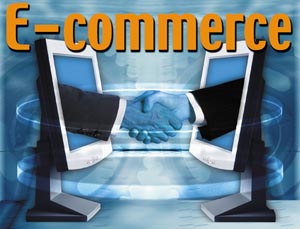

Maximize Your Web Site's Effectiveness
Most likely, your Web site is a minimal component of your business, but that doesn't mean it can be shoddy. Even if you don't realize it, your Web site says a lot about your company's dedication to quality customer service. Those customers who visit your site will either be impressed by its uncomplicated layout, useful information and sensible structure, or conversely they'll be frustrated by its slow-loading pages, unnavigable design and useless content.We want your customers to think your Web site is the best thing since sliced bread (or at least worth looking at), so we've gathered up some tips from experience Webmasters for designing a successful and customer-friendly page.
- Relevant, High-quality Content - Your customers are looking at your site to get information, so content should be your number one priority. Face it, no one wants to wade through oodles of text just to find what services your firm provides. On the other hand, providing too little information can make looking up the site seem like a waste of time. Determine what kind of things your customers care about the most and post that information in a coherent fashion. Keep all information current and tell the user when the page was last updated.
- Structure and Ease of Use - Users should be able get to where they want to go on your site easily and quickly. Flashy is not always better - clean, uncomplicated designs can make it easier to locate products or other information. Set up your site with a logical hierarchy so that your customers know where they are at all times. Ideally, each content page should contain one conceptual unit of content (i.e. case histories, new products or company history).
- Search Functionality - Sometimes customers will not be able to find what they're looking for right away, so allow them to search your site for keywords and phrases. Basic search engines can save users lots of time, making them happier surfers.
- Small File Sizes - The smaller the size, the more quickly the page will load. An 80K page will load in about 2 to 3 seconds with 28.8K modem. Warn users if a file will take a long time to load so they are prepared to wait.
- Contact Info - People don't like to deal with a location-less entity on the Web - it makes them nervous and suspicious. Prominently list your company's physical address, phone and fax numbers, at least one e-mail contact address, and days and hours of operation. By giving your customers this information, they'll be able to contact you at their convenience, as well.
- Memorable Domain Names - If your domain name specifically relates to your company (i.e. the ABC Co. secures the domain name www.abc.com), your customer is more likely to remember it and keep coming back to it. Paying a little bit of money for that tailored name can be worth the extra cash.
- Clear Page Titles and Links - Page headings that are highly visible and unambiguous will help users navigate your site more easily. Also, including keywords in your titles will help you get more traffic from search engines. Using descriptive wording in your links allows your customers to know exactly where the click of a mouse will take them, reducing confusion.
- Frequently-asked Questions - An inclusive F.A.Q. page will provide your customers will immediate answers to some basic questions, cutting down on the amount of inquires you receive from surfers and saving you time.
- Use of Media - If using animation, sound or graphics, make sure they are not annoying to users or take too long to load. In general, awful music is more offensive than poor graphics. Hearing "Bridge Over Troubled Waters" every time you visit the home page may seem like a cute idea, but it definitely could irritate your customers. All media should be attractive and well thought-out.
- Frames or No Frames? - The jury is out on this one. Some claim that frames are horrible since they do not allow surfers to bookmark deep pages and can be difficult to navigate. Others claim that they are attractive and do much to increase the site's aesthetic appeal. If you decide to use frames, highly consider creating a "no frames" version of your page to make your site more versatile.

How Three Cyberpundits View E-commerce
by Catherine Mulroney
The world of electronic commerce continues to grow - in both scope and importance. Here, a trio of e-commerce experts offer up their observations, forecasts and a little free advice.
Transform or Die
Doug McCuaig, senior vice-president at the professional services firm Ernst & Young, tells us, "E-commerce has created the new shopping center, a new distribution channel in recognition that people are multitasking." McCuaig sees two trends as important: business-to-business use of e-commerce to trim costs and boost efficiency, and a realization by businesses that the Internet places increased emphasis on customer relationships. The Internet, he says, levels the playing field for companies reaching out to customers, and that has prompted firms to focus on what they do best, often working with other companies to complete the picture.
McCuaig predicts e-commerce will experience sustained growth because of "customer pull." He believes users will continue to be attracted by the convenience of Internet shopping. "The winners will be those who are open to change," he says. "It's tough trying to be fast, but it's even more important to smaller businesses with less infrastructure." The flip side, of course, is that the losers will be those who can't keep up or fail to recognize that e-commerce is fast becoming one of the key pillars of competition, he notes, adding that the adoption rate of the Internet is about the same as that for television when it was introduced. "Transform or die," says McCuaig.
Save Some Money
E-commerce author and consultant Jim Carroll stresses that "the real magic of E-commerce is that it's leading to a paperless society for the business world, which reduces the cost of doing business." Carroll sees even bigger growth in a decade or two as today's children grow up. "Boomers have got baggage" that limits their willingness to use technology, but today's computer-savvy kids will become dedicated on-line consumers, he says.
Winners will think strategically, re-engineering their organization to include the Internet; losers will be those who sit back and discount the Internet. "The guy who says, 'The Internet gives me a headache' - now there's a loser."
Key advice offered by Carroll: "E-commerce is not about making money but about saving money. Offering the Internet option gives potential customers another place to reach you without adding to infrastructure costs."
Skeptics Become Believers
Rick Broadhead, noted consultant, author and speaker, points out that "the Internet is forcing people to re-examine how they do business." That translates to new standards of customer service. Companies have to look at how the Internet is affecting everything from finance to marketing. Broadhead sees new business being spurred on by the convenient access the Internet can provide prospective customers. "Skeptics are becoming believers," he says. "Winners will be those who can recognize future trends and capitalize on them, while the losers will be the skeptics. The hardest thing to deal with has to be change, but learning how to do that is essential, as new competitors are coming out of nowhere."
Tips on E-commerce
by Joyce Watkins King
1. Make sure that your URL (Uniform Resource Locator), commonly known as your Web address, is printed on everything that leaves your office: business cards, stationery, envelopes, proposals, brochures and fax cover sheets. If you already have a big supply of some of these items that you don't want to toss, consider having a small sticker printed that you can add to the back of your business card or on envelopes, etc.2. Make sure everyone in your firm knows how to access your Web site and navigate through it. That way they can easily bring it to the attention of customers and prospects as part of their daily routine.
3. Register your site with online directories, subject trees and search engines. Most of these registrations are free. You can register for most of these sites all at once by visiting www.submit-it.com.
4. Have your site linked to other related companies' or associations' Web sites. Some of these sites may charge you a monthly fee for the link, but many are willing to do it for free. There are now businesses involved in providing linking services; Webconnect is one such company www.worldata.com/webcon.htm.
5. Keep your site interesting and fresh. Updating frequently will encourage visitors to come back. Consider including a section on projects completed and projects underway with frequently changing photos. This will keep your current clients interested and give potential clients a good introduction to the type of work you do best.
6. If you have recently added or updated your Web site, consider sending out a press release to local business publications and construction publications, and/or a letter to your best customers.
7. Don't abandon traditional marketing channels like brochures and advertising - these are still viable and necessary in today's market. Strive to keep a graphic connection between the look for your Web site and your hard copy publications, video, etc. And remember - always reference your Web site address on everything that leaves your office.
Joyce Watkins King is with FMI, management consultants to the construction industry, headquartered in Raleigh, N.C. (www.fminet.com).
Report Abusive Comment